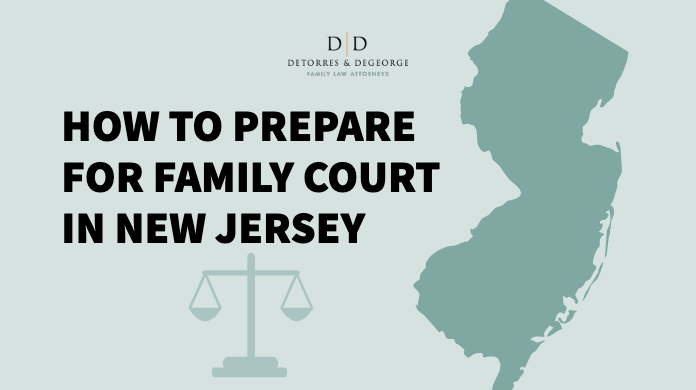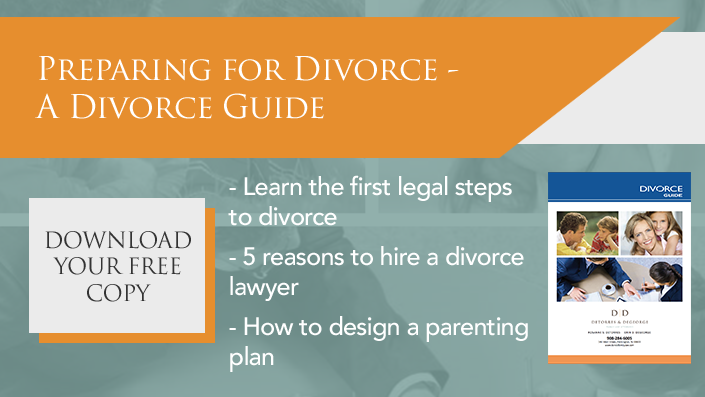 People are often overwhelmed by the thought of going to court – mostly due to misconceptions about how courtroom proceedings operate, based on what people have learned from television shows or heard from a third party. But attending family court in New Jersey is much less intimidating than TV would lead you to believe, especially once you know the basics surrounding your proceeding and take some time to prepare.
People are often overwhelmed by the thought of going to court – mostly due to misconceptions about how courtroom proceedings operate, based on what people have learned from television shows or heard from a third party. But attending family court in New Jersey is much less intimidating than TV would lead you to believe, especially once you know the basics surrounding your proceeding and take some time to prepare.
Early Court Appearances
At the outset of your case, you will be scheduled for a Case Management Conference. If you are represented by counsel, this will be the least stressful of the court appearances, as you will not need to do anything. Your attorney will work with the opposing counsel in order to reach an agreement about dates and deadlines and keep the divorce process moving forward. About six months into your case, you will be scheduled to appear for an Early Settlement Panel. Your attorney will prepare an ESP memo, which is a document that explains your position for settlement, including supporting documents that may be needed so the panelists can evaluate your position and offer an opinion. As long as your attorney has been keeping up with the dates set forth in the Case Management Order and has all of the documentation that you need in advance of this date, there is no need to be concerned about this family court appearance. In fact, many attorneys believe that this is the best opportunity for reaching a settlement.
Motions
In some cases, motion practice is unavoidable in the family court. This may be because one party will not permit the other to see the children and a motion for parenting time must be filed, or because one party is dissipating (meaning spending or wasting) assets and a motion is necessary in order to have the accounts frozen. When a motion is filed, the moving party must ask for all relief that they are seeking in their initial papers. That party must also provide supporting documents to bolster his or her claims with the moving papers. The other party then has an opportunity to respond to the motion, as well as to ask for relief that he/she may desire. The person who filed the moving papers then has an opportunity to submit opposition to the cross-motion. No further papers are permitted to be filed after that time. If the court schedules you to come in for oral argument, your attorney will only be permitted to address the relief asked for in your motion and may only refer to documents that were already submitted to the court. There is no room for a Law & Order moment; there will be no last-minute surprise document that totally changes the course of the case. The best way to be prepared for a motion hearing is to know the details of your motion papers – and those of your adversary – inside and out, and be prepared to handle questions from the judge.
Uncontested Hearings, Default Hearings, and Trials
Once you have reached the end of your case – whether it be by settlement or trial – you will need to go to court in some capacity in order to finalize the divorce.
- Uncontested Hearings
If you have reached a settlement, you will go to court for an uncontested hearing. At this appearance, your attorney and the judge will question you about the settlement agreement to ensure that you believe that it is fair and equitable, that you understand all of the provisions of the agreement, and that you intend to be bound by the agreement. Generally, the agreement has been signed by the parties in advance of this date and your attorney has briefed you ahead of time about what questions may be asked. - Default Hearings
If your spouse did not respond to the complaint for divorce and you proceeded as a default divorce, you will need to give testimony to the judge about what you believe is a fair resolution to your case. Your attorney will have prepared a Notice of Proposed Final Judgment and submitted it to the court and your spouse ahead of time. This document sets forth your position on resolution and provides all of the backup proofs that support your position. After hearing your testimony, the judge will make a determination about the ultimate disposition of all aspects of your matter. - Trials
A trial is the most complex and time-consuming option. As with a default hearing, your attorney will submit your proofs in advance of the trial date, along with a trial brief setting forth your position on the issues. If all of the issues of your matter are proceeding to trial, you will be expected to give testimony about each issue. Your spouse’s attorney will have an opportunity to question you as well. Your spouse will also have an opportunity to present his or her case. Trials often last a number of days and require multiple binders of documents and information.
No matter what your case involves, the key is always to be prepared for family court. If you are considering a divorce and want to understand the divorce process more fully, schedule a consultation with one of our DeTorres & DeGeorge attorneys today.


 START LIVE CHAT
START LIVE CHAT










